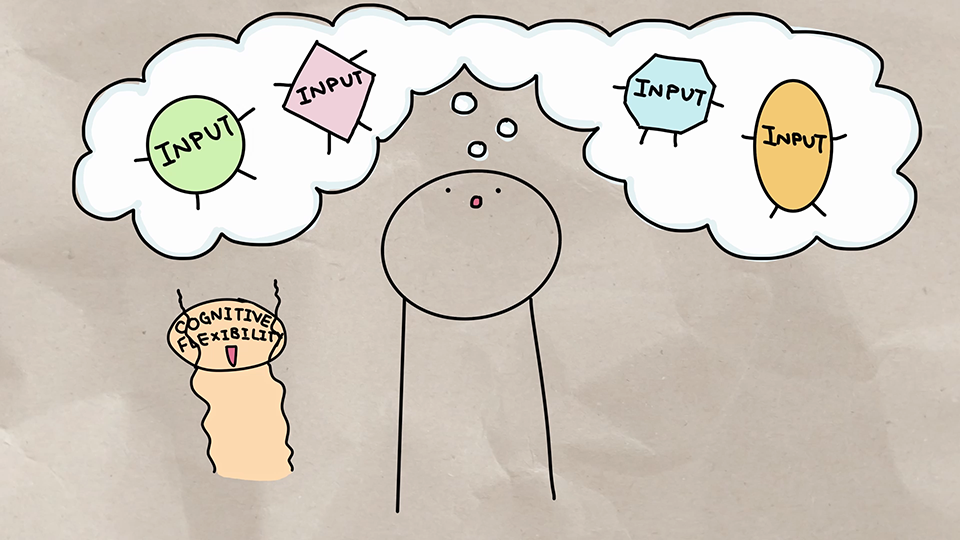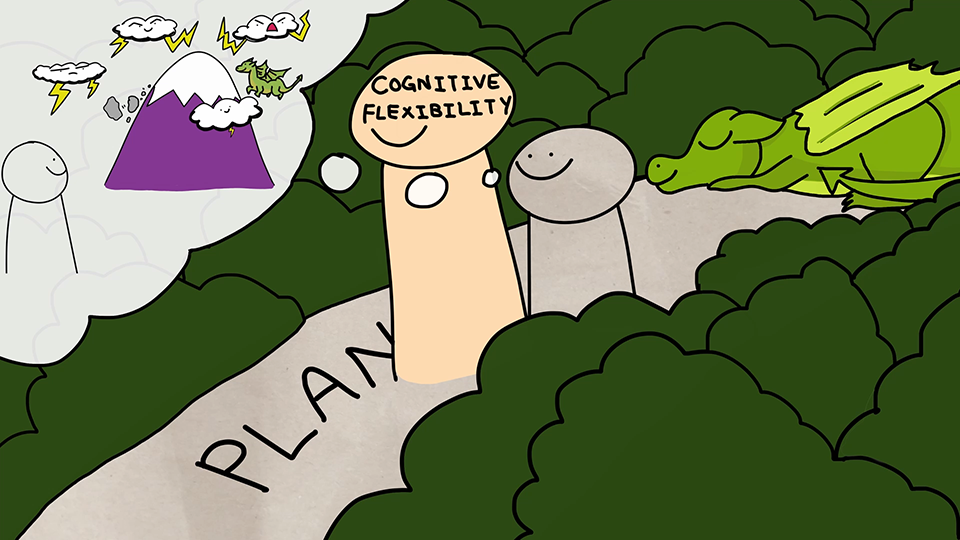Use feedback to grow your cognitive flexibility
Some of the older participants are struggling with their confidence levels. They feel they're alone and are feeling challenged by the new tools. They feel intimated by the younger team members who seem to be learning and adapting to the new tools quickly. You give these participants feedback and advice to help them overcome these challenges.
Offer feedback
Providing and receiving effective feedback can help guide others toward enhancing their cognitive flexibility.
As a first step, review their goals with them and offer to give feedback on the goals they describe. The feedback can include suggestions on how to:
Reorient their goals.
Review the problem from different perspectives.
Rethink their strategy.
You can share what you noticed about the other person's goals and provide specific suggestions for next steps. You could choose to ask a question of your own, like those listed in the following table.
| Feedback objective | Example questions and statements |
|---|---|
| Reorient their goals. | What's your overarching objective? Do you want to learn this concept to master a skill? Or are you just interested in completing the task so that you can move on to the next one? |
| Invite them to ask questions. | I'd love to just open this up to any questions you have about the field. What's next for you? |
| Evaluate different perspectives. | What stood out about your experience? What did you find most useful or interesting? What would you have liked to change? Is there anything you would have liked to approach differently? |
| Ask them to rethink their strategy. | You haven't tried this strategy yet. Notice how you tried this new way, and you got closer? You just haven't quite got it yet. You'll get there if you're willing to keep learning and trying. |

Feedback is effective only when it's specific, timely, and contains concrete guidelines or steps for improvement. By providing effective feedback to someone, also known as wise feedback, you can help reinforce their self-confidence and motivate them to persist in their efforts. When you share your feedback with others, apply the following guidelines to enhance their cognitive flexibility:
Provide as much context as possible.
Signal to them that you care and value their contributions.
Indicate that you heard and value them by saying "Thank you for sharing."
Provide tools, tips, and guidelines that they can apply to overcome challenges.
Remember to avoid glossing over their mistakes, providing empty praise, or explaining what went wrong from lack of ability, as illustrated in the following examples:
Great job! You’re really smart!
Don't worry, some people aren't tech people.
Maybe this program isn't the right fit for you.
Receive feedback wisely
Throughout a CS learning and career journey, you'll often give and receive feedback. Understanding how to give, receive, and leave effective feedback is important. The art of separating ideas (what you've created) from identity (who you are) helps you understand that your work isn't a reflection of your worthiness.
It's also important to find ways to unpack and apply received feedback to move forward constructively. You can change your perspective and find new ways to pivot and flex. Feedback can give you ideas so you can stretch your awareness of what's possible.
External feedback can provide new perspectives that you need to pivot and persist. But critical feedback given without positive signals and additional guidance can undermine your confidence. Instead of encouraging you to persevere, it can have the opposite effect of making you drop out or give up.
When you receive feedback, remember to seek effective feedback. If you don't find the feedback effective, ask clarifying questions. You can also seek another opinion or have someone unpack the feedback with you. And sometimes, when the feedback is ineffective, the best option might be to ignore it altogether.
